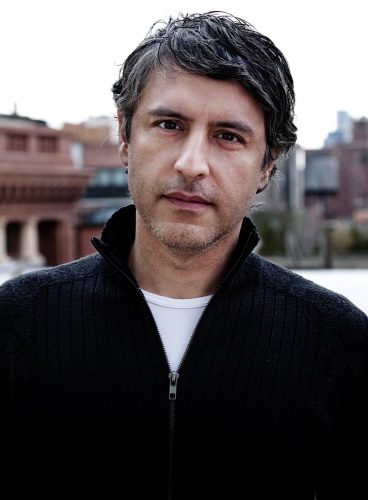
“The problem isn’t Donald Trump, the problem is Trumpism,” Reza Aslan tells EW.
Known for his book Zealot: The Life and Times of Jesus of Nazareth, as well as for his long, patient interview with a Fox News reporter who could not understand how a Muslim could write a book about Jesus, Aslan comes to the University of Oregon Oct. 18 to present “An Evening with Reza Aslan: Religion, Identity and the Future of America.”
Aslan will discuss Trumpism and more at his free talk. He says of the current U.S. political situation and attacks on Muslims, “I think that human beings are inherently tribal, and we are predisposed to try to connect ourselves with people who share aspects of our identity, then identify ourselves in opposition to those who don’t,” such as followers of Islam.
Aslan, who has a doctorate in sociology of religions from University of California, Santa Barbara, says religion is one of the primary forms of identity in the world today, and “despite a century of confident predictions about how eventually we will all just abandon religion, it seems as though religious identity is an even stronger force today than it was even 100 years ago.”
Aslan attributes this to factors such as globalization, the breakdown of nationalism and the dissolution of national identity, factors that make it easier for us to retreat to our own religious certainties and to “demonize other religions.”
Being more religiously literate not only lets us pursue a more peaceful and prosperous world, but also benefits us as individuals, the Iranian-American says, and in the same way we encourage people to be multilingual, we should encourage people to be multi-literate.
Aslan is a professor of creative writing at UC Riverside, but he does not restrict himself to the “ivory tower” of academe when it comes to shaping people’s perceptions. Through his BoomGen Studios media company he provides alternative coverage of the Middle East and its communities throughout the world. He is also the executive producer of a new ABC TV drama, Of Kings and Prophets, a retelling of the biblical story of King David, and in 2017 will host the CNN spiritual adventure series, Believer, exploring religious traditions from around the world.
Aslan says the single greatest misconception about Islam is that it is somehow unique or extraordinary in some way. All religions are inherently different from others, he says, but Islam is not “utterly foreign.” In fact, it is “deeply a part of the ‘Judeo-Christian religious tradition.’”
Islam and Judaism are “intimately tied together,” he says, with most of the same dietary traditions, many of the same ritual experiences and the same concept of god. “When it comes to Christianity, people would be surprised to know that Muslims believe Jesus is the Messiah,” Aslan says, and that “Jesus is going to return at the end of time to judge humanity.”
With the rise of Donald Trump, Aslan says what we are seeing is a crisis of identity for Americans in a world they don’t recognize anymore. “They don’t recognize the cultural, political and racial landscape. Hence the Trumpian battle cry, ‘Make American Great Again.’” The idea that we can return the U.S. to some imaginary past “is deeply embedded in this identity crisis,” he says.
According to Aslan, “Trumpism goes far deeper than just one man running for office.” Harkening back to the idea that people are tribal, he says that “when a group of people has trouble coming to grips with who we are, they identify themselves in opposition to an ‘other.’” Something, he continues, “we have always done in times of stress in the U.S.”
In the past it has been Catholics and Jews, but currently, “Islam and Muslims have become the stand-in for that which is not American,” Aslan explains.
His lecture, he says, will discuss this and what to do about it.
Doors open for Reza Aslan’s Oregon Humanities Center lecture at 7 pm Tuesday, Oct. 18, in 156 Straub Hall on the UO campus. It is free and open to the public, and will be followed by a book sale and signing. Seating is limited to 500, with no tickets or reservations, and will be livestreamed at ohc.uoregon.edu. For more info call 541-346-3934 or write ohc@uoregon.edu.